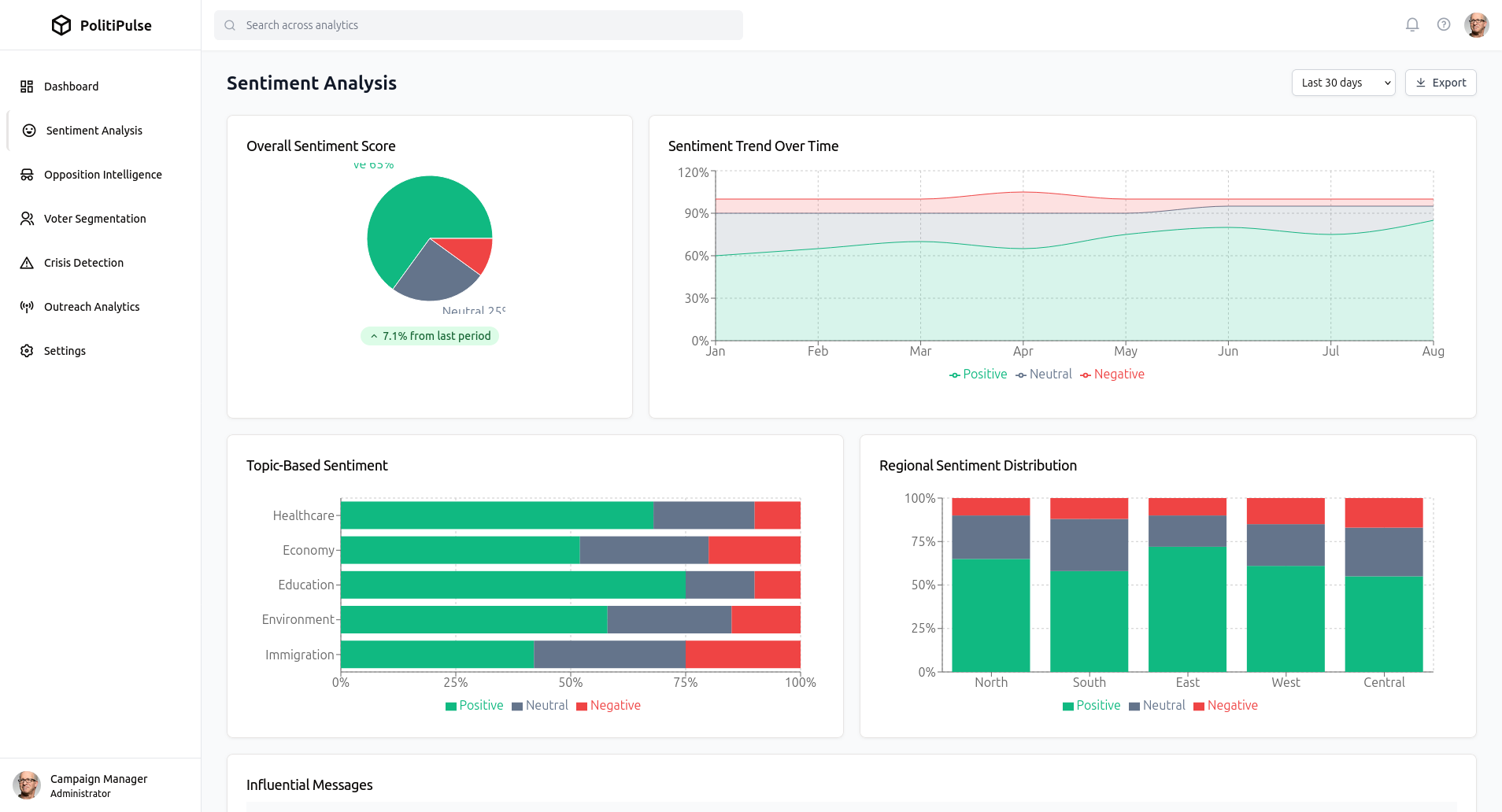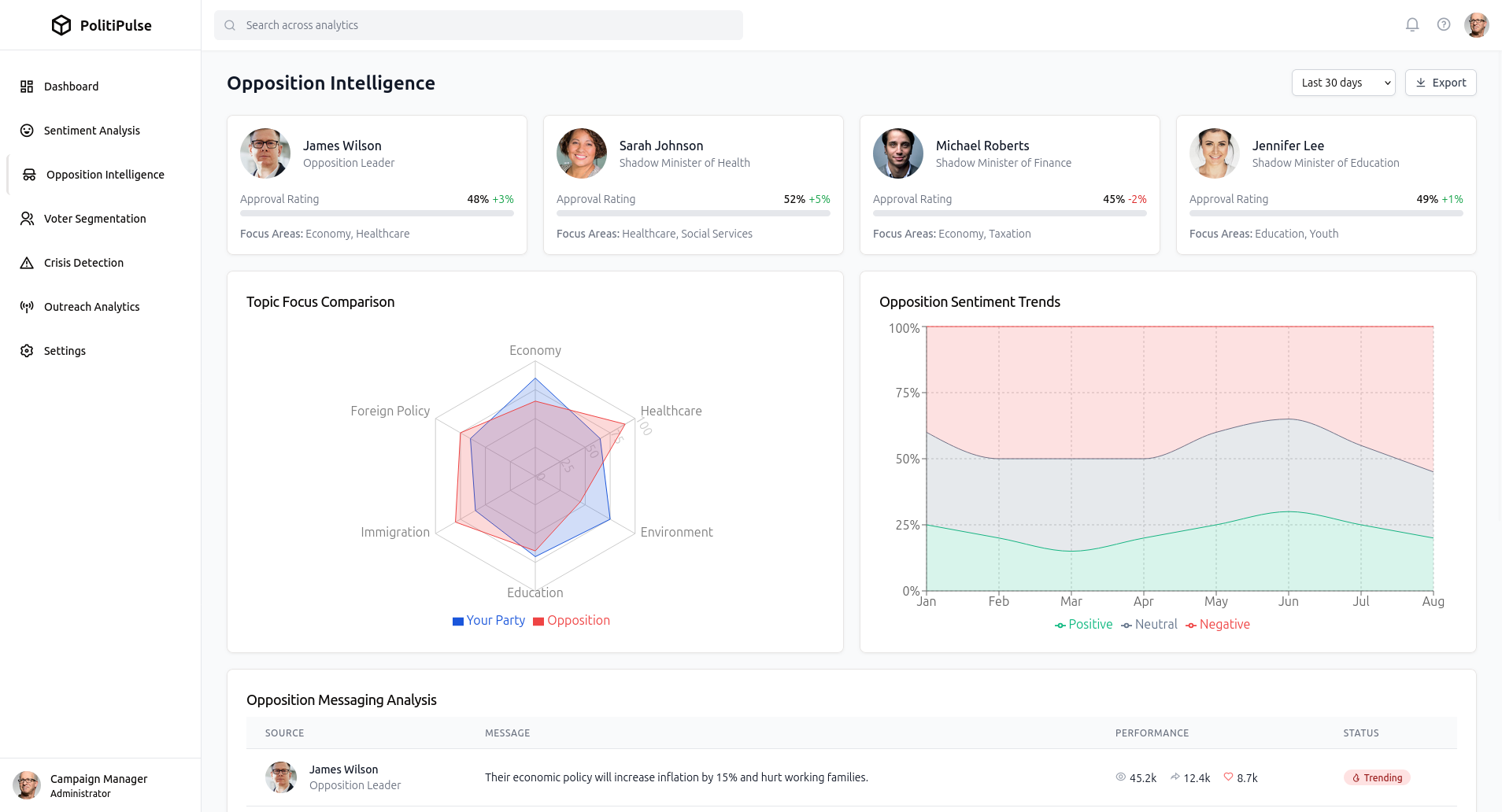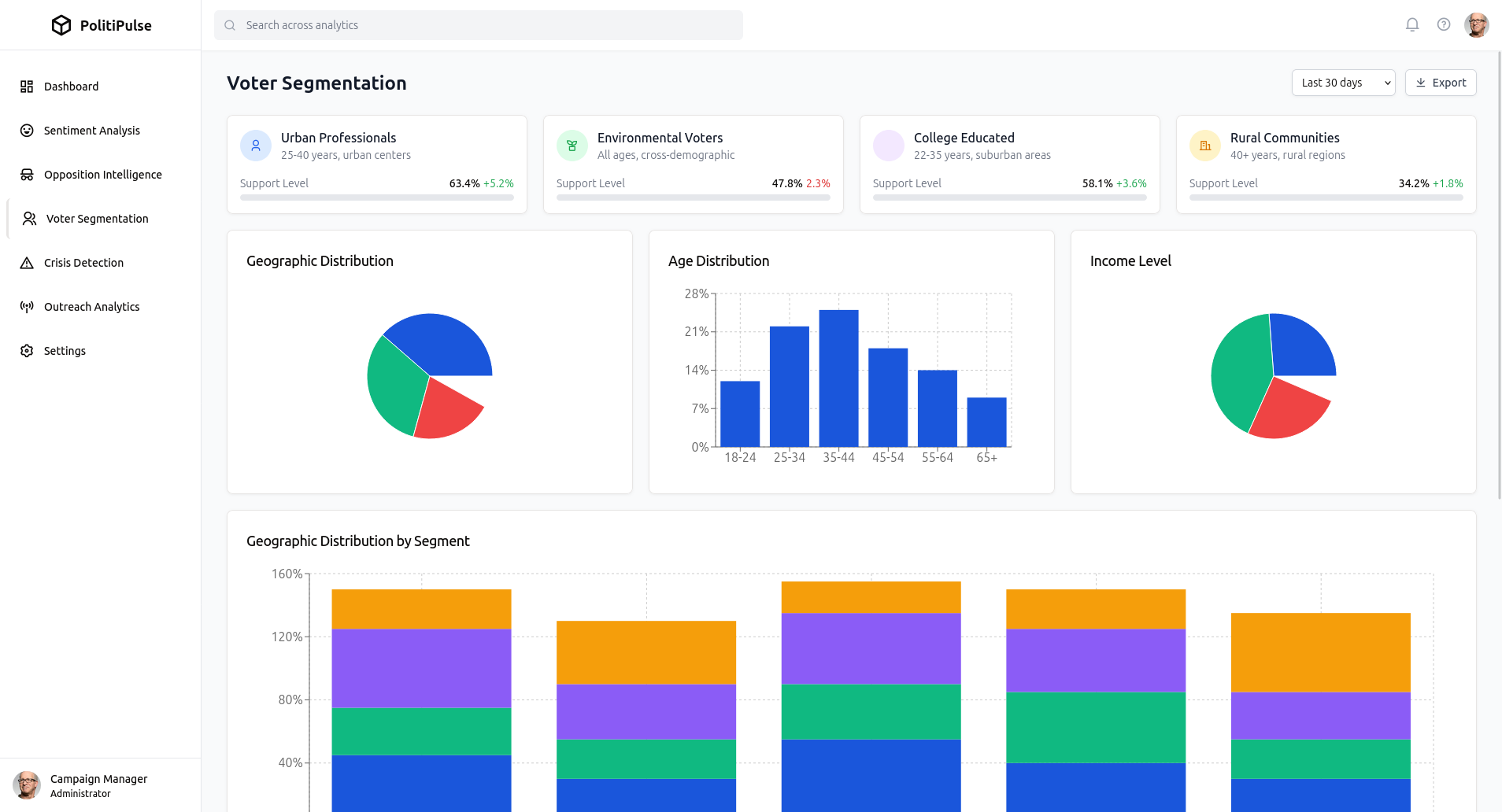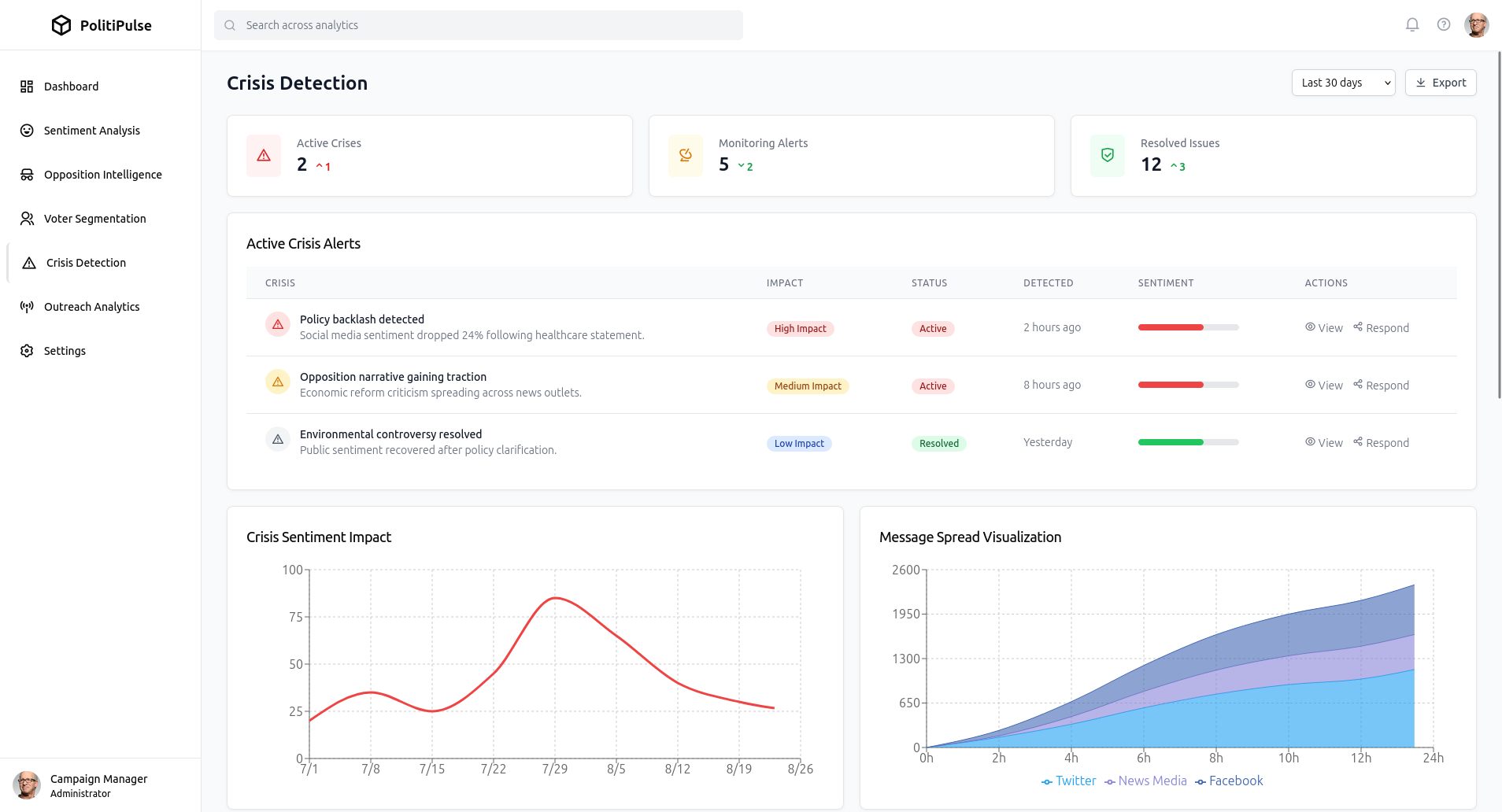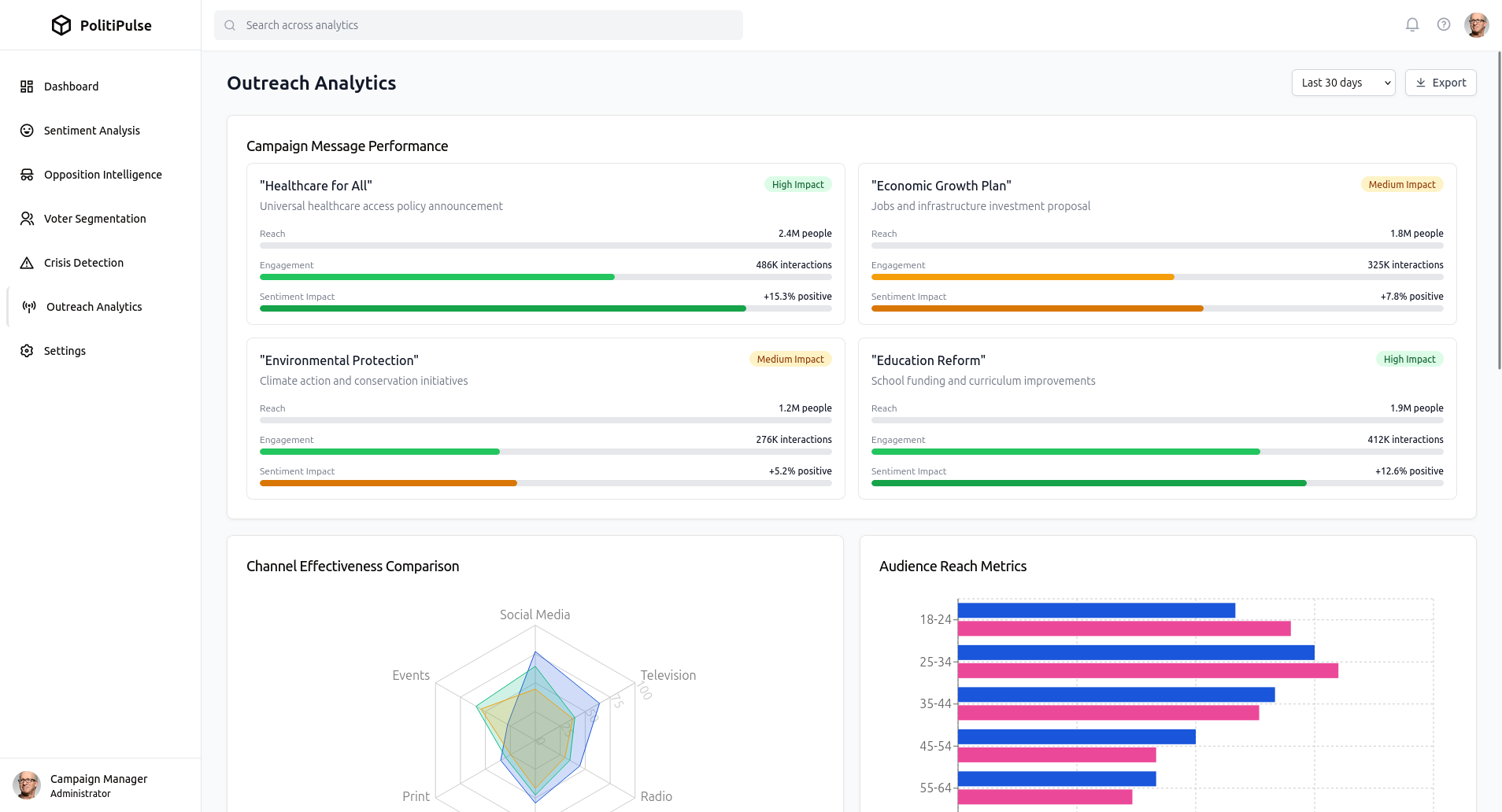Preemptive Defense: How AI-Powered Crisis Detection is Reshaping Campaign War Rooms

The modern political campaign moves at the speed of social media. A single tweet, video clip, or news story can spiral into a full-blown crisis within minutes, potentially derailing months of careful strategy and messaging. In this high-stakes environment, campaign teams are increasingly turning to sophisticated AI-powered crisis detection systems that transform reactive damage control into proactive reputation management.
The Evolution of Campaign Crisis Management
Traditional campaign war rooms relied heavily on human monitoring, manual media tracking, and often discovered emerging crises only after they had already gained significant traction. The delay between a problem surfacing and the campaign’s response could mean the difference between a minor blip and a campaign-ending disaster.
Today’s AI-powered crisis detection systems have fundamentally altered this equation. By continuously analyzing vast amounts of data across social media, news outlets, forums, and other digital channels, these sophisticated tools can identify potential threats in their earliest stages—often before they’ve had a chance to spread widely.
“The window for effective crisis response has shrunk from days to minutes,” notes political strategist Samantha Wilson. “Campaigns that wait until negative stories hit mainstream media are already fighting a losing battle.”
How AI-Powered Crisis Detection Works
At the heart of modern campaign war rooms lies a sophisticated system of algorithms and machine learning models that function as an early warning system. These systems typically operate through several key mechanisms:
1. Real-Time Monitoring at Scale
Unlike human teams that can only monitor a limited number of sources, AI systems can simultaneously track conversations across millions of social media posts, news articles, videos, and other content sources—24 hours a day, seven days a week, without fatigue or oversight.
Our Dextera Intel Crisis Detection platform continuously monitors over 500 million social media accounts and 100,000 news sources in real-time, analyzing content across 12 languages to ensure nothing slips through the cracks.
2. Sentiment Analysis with Contextual Understanding
Modern sentiment analysis goes well beyond simple positive/negative classification. Today’s AI systems understand context, detect subtle shifts in public opinion, and can distinguish between genuine grassroots concerns and coordinated attacks.
“The ability to differentiate between random negative comments and the early signals of a coordinated smear campaign is critical,” explains data scientist Marcus Chen. “Our Sentiment Analysis service can detect patterns that indicate orchestrated attacks versus organic criticism, allowing campaigns to respond appropriately to each situation.”
3. Threat Pattern Recognition
By analyzing historical crisis patterns, AI systems learn to identify the early warning signs of specific types of political crises—from opposition research dumps to misleading viral clips, scandals, and disinformation campaigns.
Dextera Intel’s proprietary crisis pattern recognition technology has identified over 70 distinct crisis signatures, enabling campaigns to recognize not just that a problem is emerging, but precisely what type of problem they’re facing and how it’s likely to evolve.
4. Prediction and Response Recommendation
The most advanced systems don’t just detect problems—they predict their likely trajectory and recommend tailored response strategies based on similar historical situations and their outcomes.
Real-World Applications in Campaign War Rooms
Preemptive Response Planning
Rather than scrambling to formulate responses after a crisis hits, campaign teams can now develop contingency plans for potential crises before they materialize. Dextera Intel’s Opposition Intelligence service helps campaigns anticipate potential attacks by analyzing opponents’ messaging patterns and identifying vulnerabilities that could be exploited.
“We’re seeing campaigns develop response playbooks for dozens of potential scenarios,” shares communications director Lisa Hernandez. “When the system flags a potential crisis, they can immediately activate the appropriate pre-planned response strategy instead of starting from scratch.”
Resource Optimization
AI-powered triage systems help campaigns determine which emerging issues require immediate attention and which can be safely monitored without active engagement. This prevents campaigns from exhausting resources on minor issues while missing more significant threats.
Continuous Adaptation
Machine learning models improve over time as they accumulate data on how different types of crises evolve and which response strategies prove most effective. This creates a continuously improving defense system that becomes more sophisticated with each campaign cycle.
Key Benefits of AI-Powered Crisis Detection
1. Speed Advantage
In crisis management, time is perhaps the most critical resource. AI systems drastically reduce the time between when a potential crisis first appears and when the campaign can begin implementing a response.
“Our Crisis Detection service typically identifies emerging issues 4-6 hours before they start trending in mainstream channels,” explains tech analyst Jonathan Miller. “That’s often enough time to get ahead of the narrative completely.”
2. Precision Targeting
By analyzing not just what is being said but who is saying it and how it’s spreading, AI tools enable campaigns to direct their response efforts with surgical precision. Voter Segmentation technology allows campaigns to identify exactly which voter demographics are most engaged with a particular issue and tailor responses specifically to their concerns.
3. Resource Efficiency
Human monitoring teams can only track a limited number of channels and are prone to fatigue and oversight. AI systems provide comprehensive coverage while freeing up staff for strategic thinking and creative response development.
4. Early Warning of Coordinated Attacks
Perhaps most valuable in today’s polarized political environment is the ability to distinguish between organic criticism and coordinated opposition activities. Social PR analytics can identify suspicious patterns that suggest orchestrated attacks, allowing campaigns to prepare appropriate defensive strategies.
Implementation Challenges and Considerations
Data Privacy and Ethical Use
Campaigns must balance effective monitoring with privacy concerns and legal compliance. Dextera Intel’s platforms are designed with privacy as a core consideration, focusing on publicly available data and anonymized trend analysis rather than individual voter profiling.
Human Oversight
Despite technological advances, human judgment remains essential. The most effective campaign war rooms use AI as a powerful tool to enhance human decision-making, not replace it. Experienced political operatives provide the context, nuance, and strategic thinking that algorithms alone cannot.
Technical Requirements
Implementing comprehensive crisis detection systems requires significant technical infrastructure and expertise. Campaigns must weigh the investment against the potential costs of mishandling a major crisis.
The Future of AI in Campaign War Rooms
Multimodal Analysis
Next-generation systems will move beyond text analysis to better understand visual content, audio, and multimodal communications, providing more comprehensive threat detection.
Personalized Crisis Management
As Voter Segmentation technologies advance, campaigns will develop increasingly personalized crisis responses tailored to different demographic and psychographic segments.
Integration with Response Systems
The gap between detection and response will continue to narrow as AI systems integrate directly with communication platforms, enabling near-instantaneous deployment of pre-approved responses to emerging threats.
Conclusion
The integration of AI-powered crisis detection into campaign war rooms represents a fundamental shift in political campaign management. By transforming crisis response from reactive damage control to proactive reputation management, these technologies are redefining what’s possible in modern political campaigns.
For campaigns looking to maintain message discipline and protect their candidates’ reputations in an increasingly chaotic media environment, advanced crisis detection capabilities have become not just an advantage but a necessity. Those who fail to embrace these tools risk finding themselves constantly on defense, responding too late to crises that could have been managed—or even prevented—with the right technology.
At Dextera Intel, we continue to push the boundaries of what’s possible in crisis detection and reputation management, helping campaigns stay one step ahead in the fast-changing world of political communications. With our comprehensive Crisis Detection service integrated into your campaign war room, you can focus on winning hearts and minds while our technology quietly protects your campaign’s reputation around the clock.


